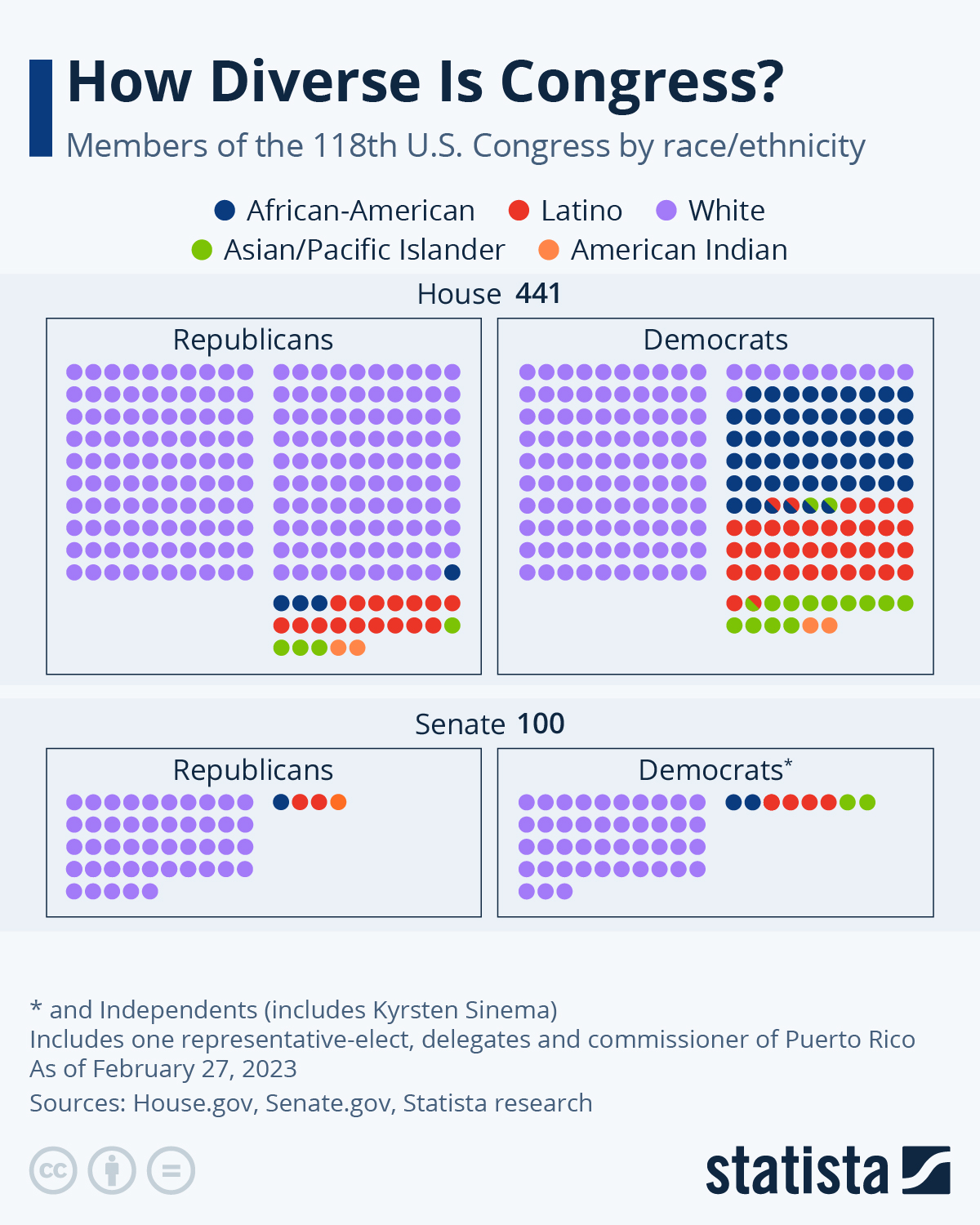Even though Congress is more diverse today than it has ever been, the overwhelming majority of U.S. Congressmen, Congresswomen and Senators is white and of non-Latino descent. The U.S. legislative session has now grown more diverse for seven elections in a row, with most minority members serving as Democrats. 113 are currently holding Congressional office as Democrats, opposed to 30 serving as Republicans.
While most minority members of Congress serve as Democrats, progress in the 118th Congress was made on the Republican side. Republican gains were albeit on a much lower level. The House of Representatives includes 26 minority Republicans, up from 21 two years ago. In the Senate, the picture is still more lopsided than in the House. A total 12 of 100 senators are non-white and/or of Latino ancestry, an increase from 11 two years ago due to Republicans gaining junior Senator Markwayne Mullin, a Cherokee Nation member from Oklahoma.
Otherwise, the Republicans gained mostly Latino members in 2023. There are now 16 Latino Republican Representatives, six of them first-term lawmakers. These include moderate former town councilman Anthony D'Esposito, who flipped New York’s 4th, and Republican-Libertarian cross-filer and former mayor Lori Chavez-DeRemer. On the other side of the spectrum are freedom caucus member Anna Paulina Luna from Florida, who endorsed by Trump embraced conspiracy theories during her campaign. Another Trump-endorsed Republican newcomer is Monica De La Cruz from Texas, who flipped another redrawn district - which actually included fewer Latino voters than before. Also likely standing further to the right is one of the most infamous Republican first-year Congresspeople - George Santos of New York's 3rd district, who has appeared on the podcast of former Trump advisor Stephen Bannon and has described himself as a MAGA candidate.





















